
David: The Heartbeat of Chiriquí
Nestled in the verdant province of Chiriquí, David is Panama's third-largest city. Known for its warm climate, friendly locals, and vibrant markets, David offers a unique blend of urban and rural experiences. Whether you are exploring its bustling streets or venturing into the surrounding countryside, David has something for everyone. David serves as a gateway to some of Panama’s most stunning natural attractions. Just a short drive away, you can find the picturesque highlands of Boquete, famous for its coffee plantations and cooler climate. The city is also close to the Pacific coast, offering easy access to beautiful beaches and marine adventures. The local culture in David is rich and diverse. The city’s central market is a must-visit, filled with fresh produce, local crafts, and traditional Panamanian foods. Don’t miss out on tasting the local delicacies such as sancocho, a hearty chicken soup, and hojaldres, a type of fried bread. The city also hosts various festivals throughout the year, providing a glimpse into the vibrant traditions of the region. David is well-connected with a range of accommodations to suit all budgets, from luxury hotels to cozy guesthouses. Whether you are in town for business or leisure, you will find that David offers a welcoming and convenient base for exploring the wonders of Chiriquí.
Local tips in David
- Visit the central market early in the morning for the freshest produce and best selection of local crafts.
- Consider renting a car to explore nearby attractions like Boquete and the Pacific beaches.
- Try local dishes such as sancocho and hojaldres at traditional eateries.
- Check the local festival calendar to experience cultural events and celebrations.
- Stay hydrated and use sunscreen, as David can get quite hot during the day.
David: The Heartbeat of Chiriquí
Nestled in the verdant province of Chiriquí, David is Panama's third-largest city. Known for its warm climate, friendly locals, and vibrant markets, David offers a unique blend of urban and rural experiences. Whether you are exploring its bustling streets or venturing into the surrounding countryside, David has something for everyone. David serves as a gateway to some of Panama’s most stunning natural attractions. Just a short drive away, you can find the picturesque highlands of Boquete, famous for its coffee plantations and cooler climate. The city is also close to the Pacific coast, offering easy access to beautiful beaches and marine adventures. The local culture in David is rich and diverse. The city’s central market is a must-visit, filled with fresh produce, local crafts, and traditional Panamanian foods. Don’t miss out on tasting the local delicacies such as sancocho, a hearty chicken soup, and hojaldres, a type of fried bread. The city also hosts various festivals throughout the year, providing a glimpse into the vibrant traditions of the region. David is well-connected with a range of accommodations to suit all budgets, from luxury hotels to cozy guesthouses. Whether you are in town for business or leisure, you will find that David offers a welcoming and convenient base for exploring the wonders of Chiriquí.
When is the best time to go to David?
Iconic landmarks you can’t miss
Miguel de Cervantes Saavedra Park
Discover the beauty and tranquility of Miguel de Cervantes Saavedra Park in David, Chiriquí, a serene escape for nature lovers and cultural enthusiasts.
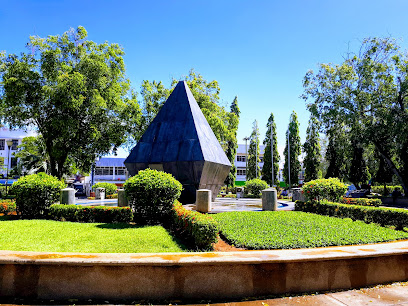
City of David Hotel
Experience comfort and local charm at the City of David Hotel, your perfect base to explore the wonders of Chiriquí, Panama.
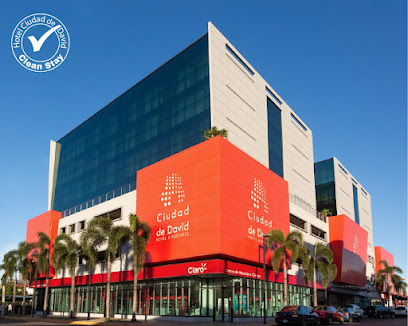
Los Cangilones de Gualaca
Explore the breathtaking beauty of Los Cangilones de Gualaca, a natural wonder in Panama's Chiriquí Province, perfect for adventure and relaxation.
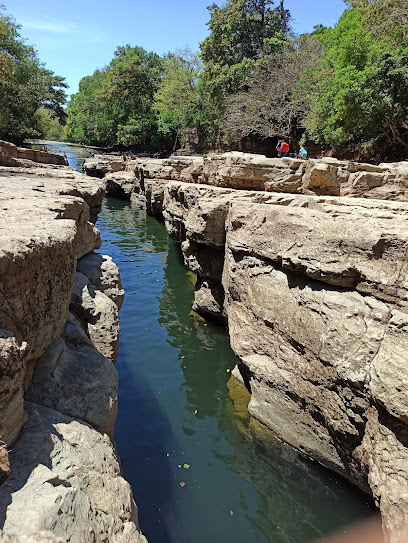
Hampton by Hilton David
Discover the perfect blend of comfort and convenience at Hampton by Hilton David, your gateway to explore the beauty of Chiriquí Province.

Aranjuez Hotel & Suites
Discover comfort and local culture at Aranjuez Hotel & Suites in David, Panama—a perfect retreat for travelers exploring Chiriquí Province.
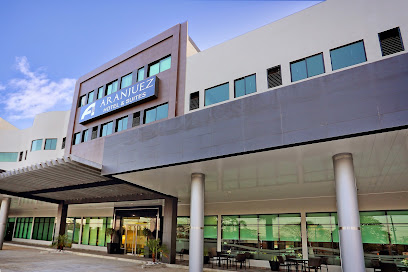
Baru Volcano National Park
Explore the breathtaking landscapes and rich biodiversity of Baru Volcano National Park, Panama's stunning natural gem perfect for adventure enthusiasts.
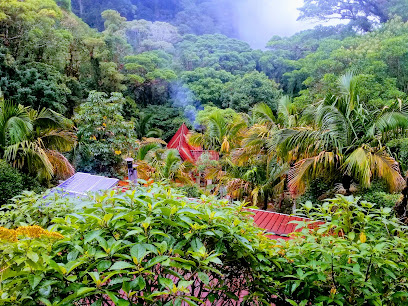
Hotel Castilla
Discover Hotel Castilla in David, where comfort meets convenience in the heart of Chiriquí Province, perfect for travelers seeking local experiences.
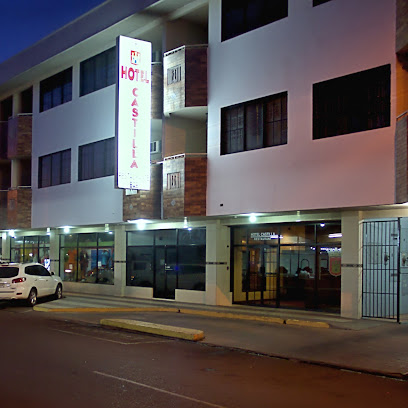
Hotel Residencial Cervantes
Discover comfort at Hotel Residencial Cervantes, your ideal base for exploring the wonders of Chiriquí Province in Panama.
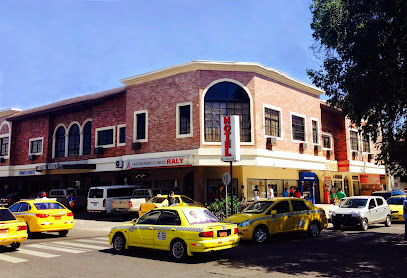
Hotel City Plaza & Suites
Discover comfort and convenience at Hotel City Plaza & Suites in David, Panama, your ideal base for exploring Chiriquí Province's natural beauty.
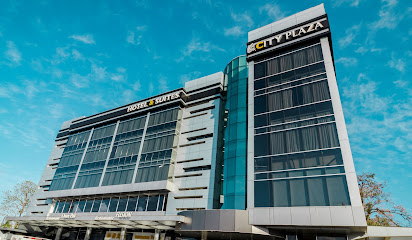
Sitio Barriles
Explore the ancient wonders of Sitio Barriles, an archaeological museum in Volcán, where history and nature unite in breathtaking harmony.
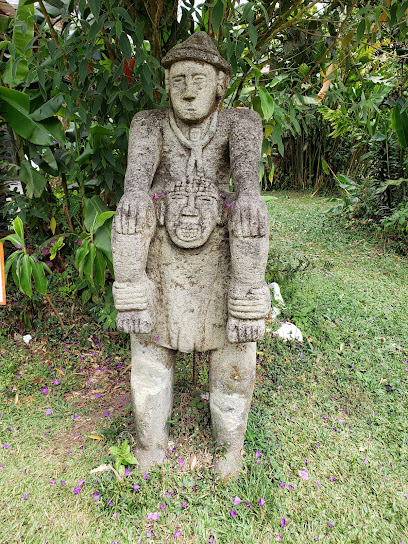
Finca Dracula
Explore Finca Dracula, a stunning botanical garden and orchid farm in Cerro Punta, home to thousands of beautiful orchid species and breathtaking landscapes.
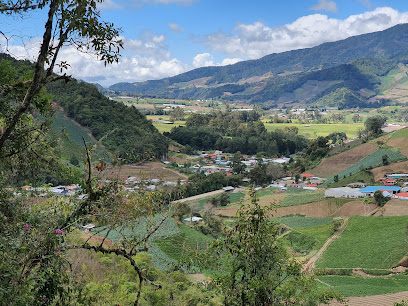
Caldera Hot Springs
Discover the therapeutic wonders of Caldera Hot Springs in Chiriquí Province, a serene escape nestled in nature's embrace.
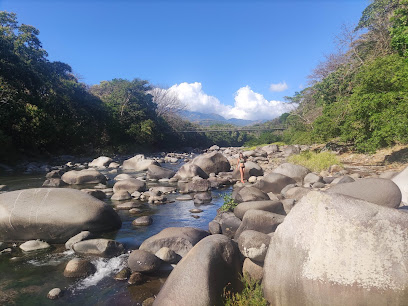
Catedral de San José de David
Explore the enchanting Catedral de San José de David, a stunning architectural gem and vital cultural landmark in the heart of Chiriquí Province.
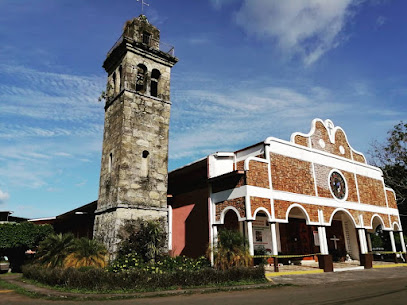
Sendero Los Quetzales
Discover the breathtaking trails and rich biodiversity of Sendero Los Quetzales, a premier hiking destination in Chiriquí Province, Panama.
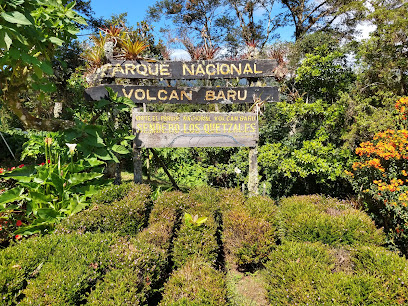
Museo del Barrio y Antigüedades La Casona
Explore the captivating history and vibrant culture of Panama at Museo del Barrio y Antigüedades La Casona in David, Chiriquí Province.
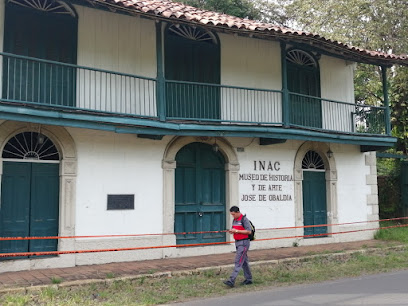
Unmissable attractions to see
Miguel de Cervantes Saavedra Park
Explore Miguel de Cervantes Saavedra Park in David, Chiriquì, a lush retreat of nature and culture in the heart of Panama's vibrant landscape.
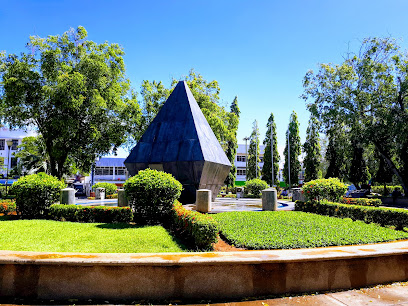
Los Cangilones de Gualaca
Experience the stunning landscapes and crystal-clear waters of Los Cangilones de Gualaca, a hidden gem in Panama's Chiriquí Province.
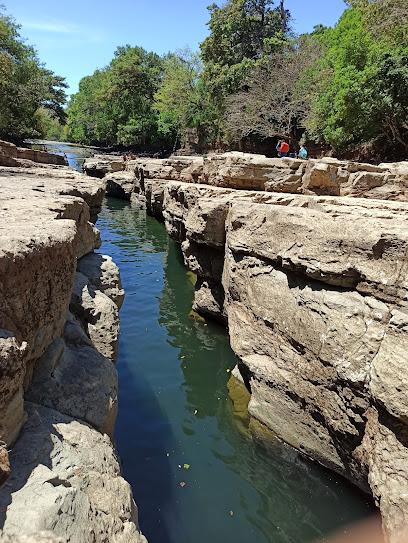
Los Ladrillos
Explore the stunning landscapes and unique geological formations at Los Ladrillos, a must-visit tourist attraction in Panama for nature lovers and adventurers.
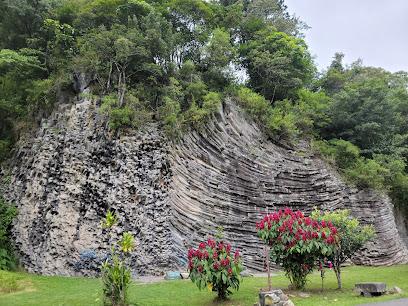
San Ramón Waterfall
Experience the breathtaking beauty of San Ramón Waterfall in Boquete, Panama - a must-visit tourist attraction for nature lovers and adventurers.
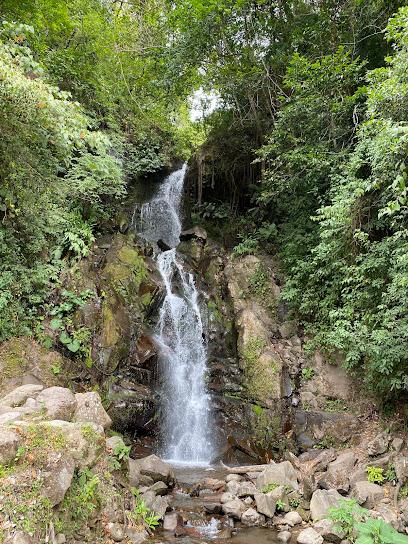
Parque Biblioteca Boquete
Discover the serene beauty and cultural richness of Parque Biblioteca Boquete, an ecological paradise in the heart of Panama's lush landscapes.
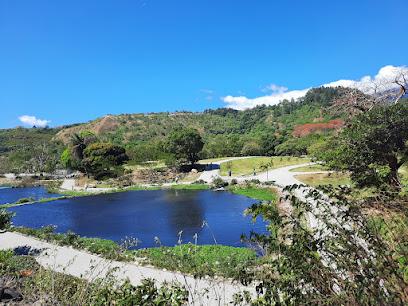
Boquete Brewing Company
Experience the rich flavors of Panama at Boquete Brewing Company, a craft brewery set in the heart of the lush Chiriquí Province.
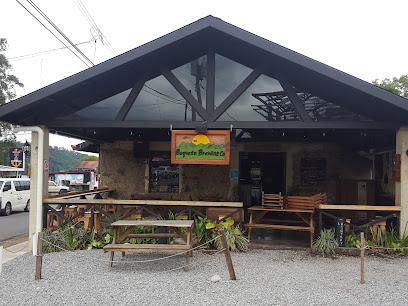
Boquete, Chiriqui. Library Park
Experience the serene beauty and cultural charm of Boquete Library Park, a perfect escape in Chiriquí Province, Panama.
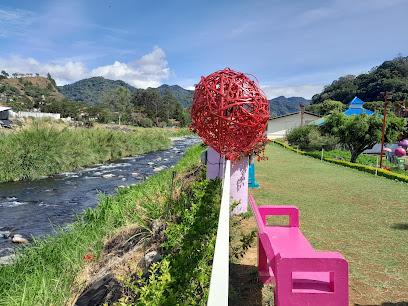
Boquete Bees and Butterflies
Explore the enchanting world of butterflies and honey at Boquete Bees and Butterflies, a unique and educational attraction in Panama's stunning Chiriquí Province.
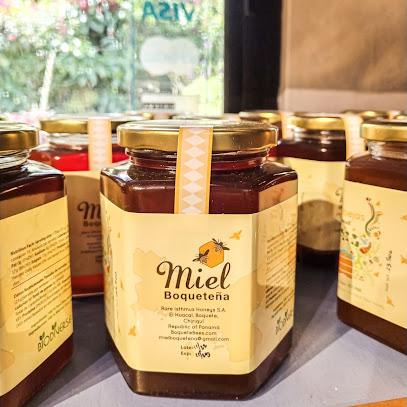
Sitio Barriles
Explore the rich pre-Columbian history at Sitio Barriles, an archaeological gem nestled in the lush landscapes of Chiriquí Province, Panama.
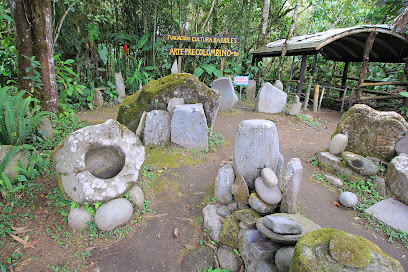
Caldera Hot Springs
Experience the soothing thermal waters of Caldera Hot Springs in Chiriquí Province, a must-visit destination for relaxation and natural beauty.
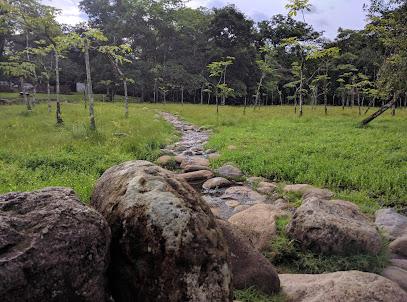
The Lost Waterfalls / Las Tres Cascadas
Experience breathtaking hikes and stunning waterfalls at The Lost Waterfalls in Chiriquí Province, a true natural wonder for every traveler.
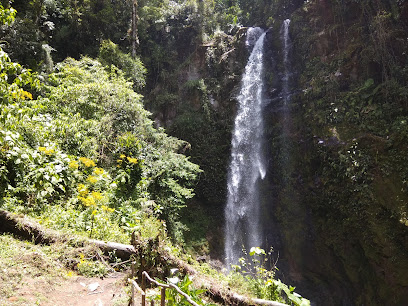
KATAR TRAMPOLINE PARK
Discover the excitement of bouncing at Katar Trampoline Park, a must-visit family-friendly recreation center in David, Chiriquí Province.
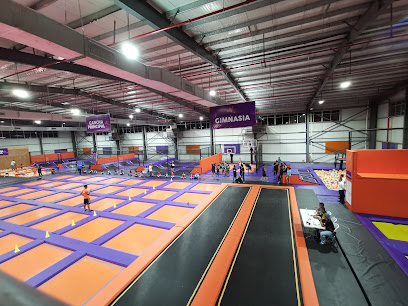
Boquete Outdoor Adventures
Experience the Best of Boquete's Natural Wonders and Outdoor Adventures in Chiriquí Province, Panama.
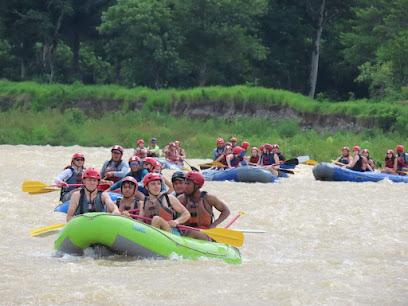
Pipeline Trail (Waterfall)
Explore Pipeline Trail in Chiriquí Province, a breathtaking hiking area filled with stunning waterfalls and diverse wildlife.
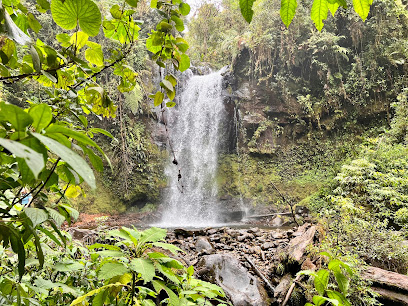
Punta de Tierra
Experience breathtaking views and serene landscapes at Punta de Tierra, the ultimate observation deck in Chiriquí Province, Panama.
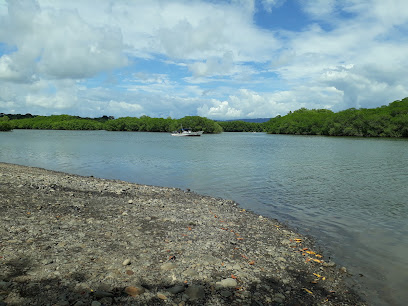
Essential places to dine
La Típica
Savor authentic Panamanian cuisine at La Típica in David—where every dish tells a story of tradition and flavor.
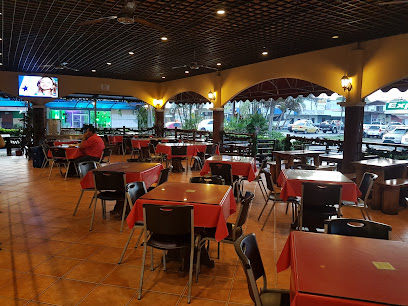
Nacionsushi | David
Experience authentic Asian cuisine at Nacionsushi in David, where fresh ingredients meet innovative flavors in a welcoming atmosphere.
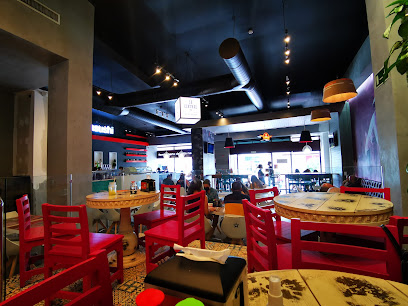
Slabon
Discover Slabon in David – where gourmet burgers meet vibrant ambiance for an unforgettable dining experience.
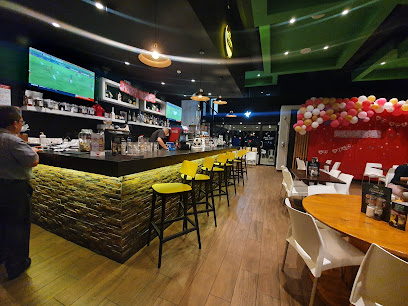
Restaurante El Molino
Discover delicious chicken dishes at Restaurante El Molino in David – an affordable culinary treasure that showcases authentic Panamanian flavors.
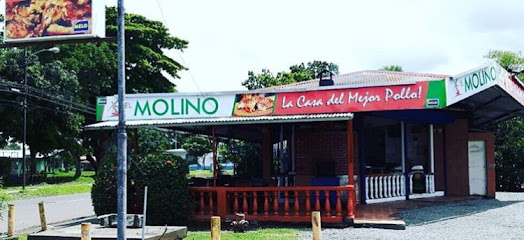
Boca Chica
Discover Boca Chica: A culinary haven in David offering exquisite local flavors and an unforgettable dining experience.
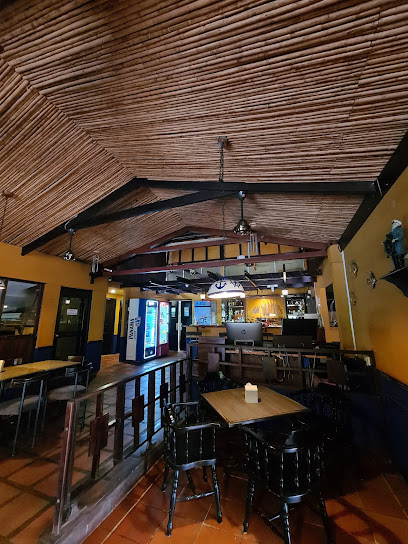
El Fogón
Discover El Fogón: A vibrant grill restaurant in David offering authentic Panamanian flavors in a welcoming atmosphere.
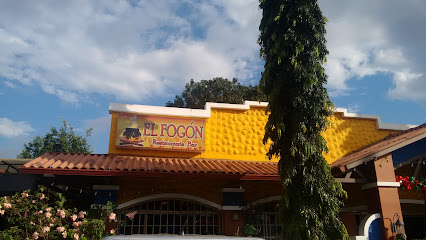
Marisquería Don Chalo
Experience the best seafood in David at Marisquería Don Chalo - where freshness meets flavor in every bite.
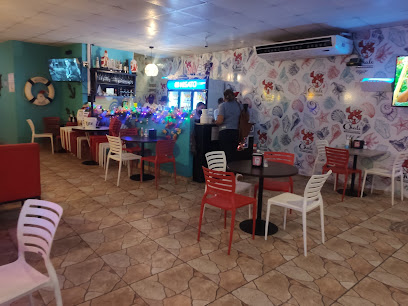
Oh-Toro Ramen & Sushi David
Experience authentic Japanese flavors at Oh-Toro Ramen & Sushi in David—where delicious ramen meets exquisite sushi in a welcoming atmosphere.
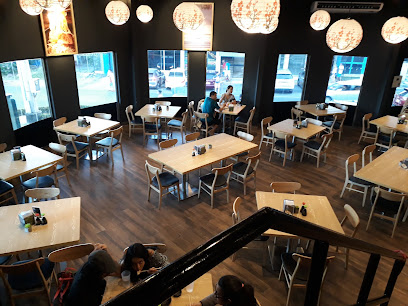
Restaurante Beef
Experience the best steaks and authentic Panamanian cuisine at Restaurante Beef in David's vibrant culinary scene.
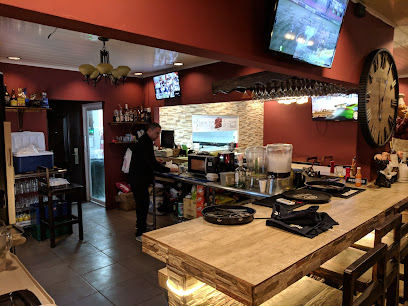
Gallardo's Steak & Grill
Discover gourmet steaks and local delights at Gallardo's Steak & Grill in David - where flavor meets hospitality in every bite.
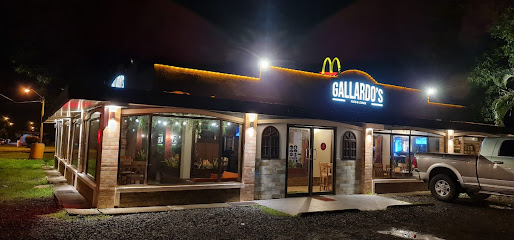
Pek2 Marinos
Experience the best seafood in David at Pek2 Marinos – where every dish tells a story of Panama's rich culinary heritage.
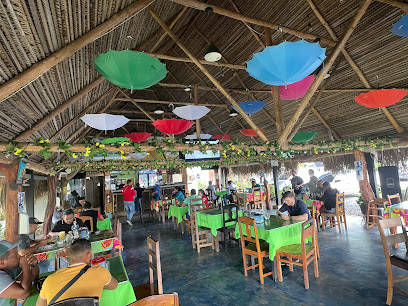
Restaurante Sedimar
Experience exquisite seafood dining at Restaurante Sedimar in Pedregal—where fresh flavors meet coastal charm.
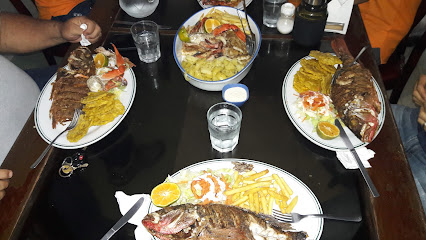
Rincón Libanes restaurant
Discover the rich flavors of authentic Lebanese cuisine at Rincón Libanes restaurant in David, Panamá – a culinary delight awaits!
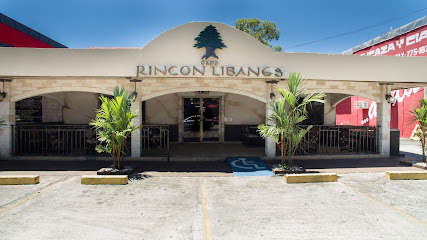
El Pescador
Discover El Pescador: A seafood haven in Chiriquí offering fresh catches and stunning views for an unforgettable dining experience.
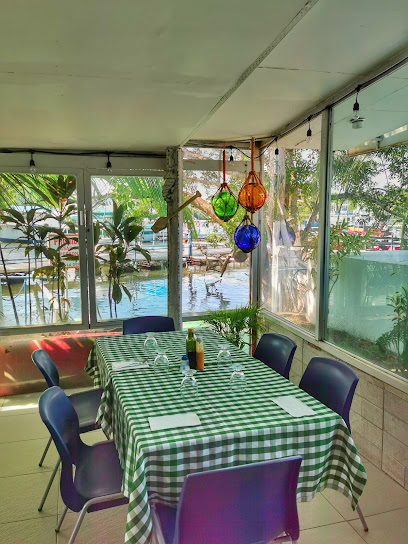
Hangar Bar and Grill.
Savor delicious grilled dishes in a vibrant atmosphere at Hangar Bar and Grill in David - your go-to destination for local flavors.
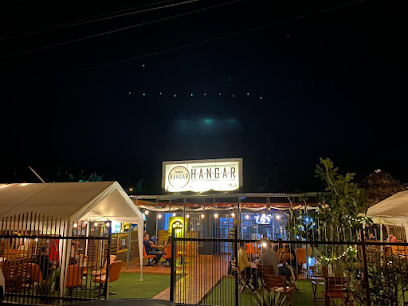
Markets, malls and hidden boutiques
Chiriqui Mall
Explore Chiriqui Mall for a vibrant shopping experience in Panama's picturesque Chiriquí Province, where shopping meets local culture and entertainment.
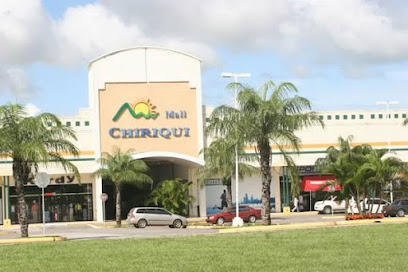
Federal Mall
Explore Federal Mall in David - Your Ultimate Shopping and Dining Destination in Chiriquí, Panama!
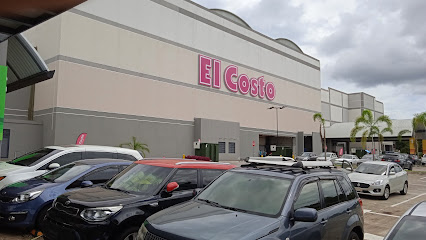
Shopping Center
Explore the lively Shopping Center in David, Chiriquí - a vibrant destination for shopping, dining, and entertainment.
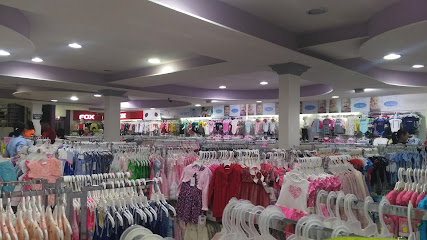
Almacén El Punto Poderoso
Discover the vibrant Almacén El Punto Poderoso in David, where local goods meet everyday essentials for an unforgettable shopping experience.
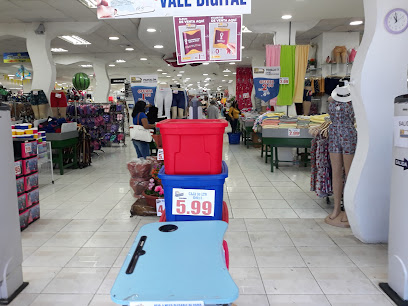
El Costo • Federal Mall
Discover the latest trends and styles at El Costo, a premier clothing store in Federal Mall, David, Panama, perfect for fashion-savvy tourists.
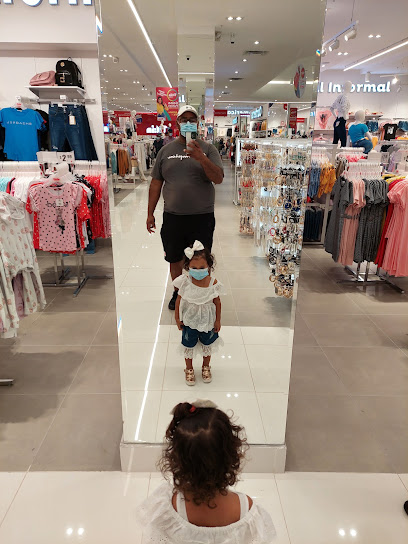
Burica Store
Discover unique fashion accessories and body art at Burica Store in David, where creativity meets local culture in every piece.
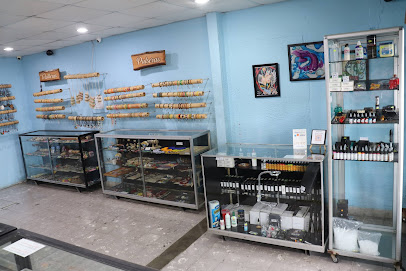
Mini super los abanicos
Discover the charm of Mini Super Los Abanicos, a local grocery store in David offering fresh produce and traditional Panamanian delicacies.
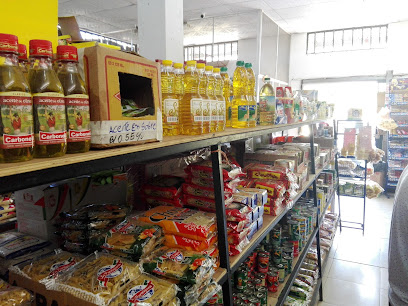
David paseo commercial plaza
Discover a shopping and cultural hotspot at David Paseo Commercial Plaza in the heart of Chiriquí Province, Panama.
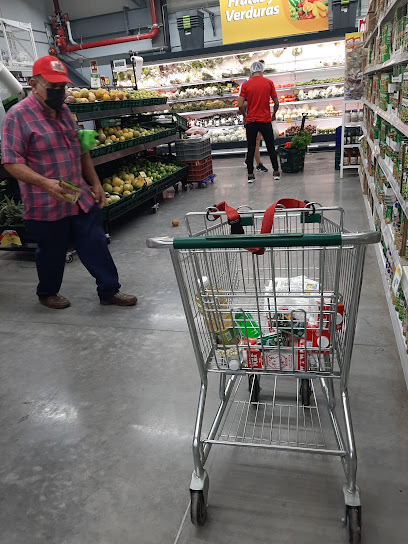
Lee Shopping Center
Experience shopping at its finest in David, Panama, at Lee Shopping Center, where local culture meets a variety of retail and dining options.
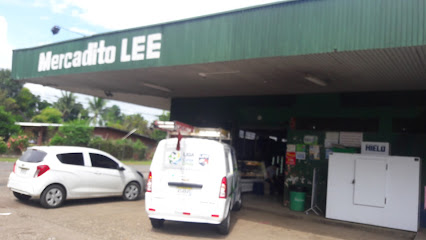
Kunai Store
Explore the enchanting Kunai Store in David, Chiriquí Province, for unique collectibles and local crafts that capture the spirit of Panama.
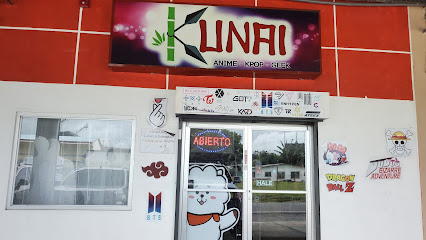
RICHES OF PANAMA Art Stones and Souvenirs
Explore RICHES OF PANAMA for unique art stones and souvenirs that embody the vibrant culture and craftsmanship of Panama.
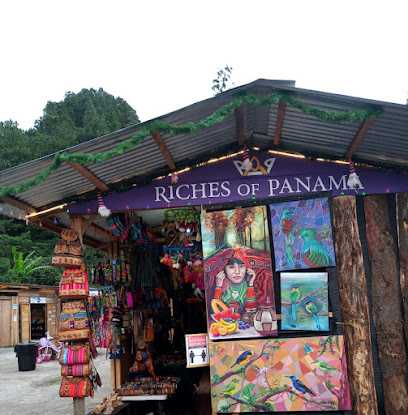
Boutique Wedding & More Panama
Explore Boutique Wedding & More Panama for exquisite fashion and personalized service, perfect for special occasions and everyday wear.
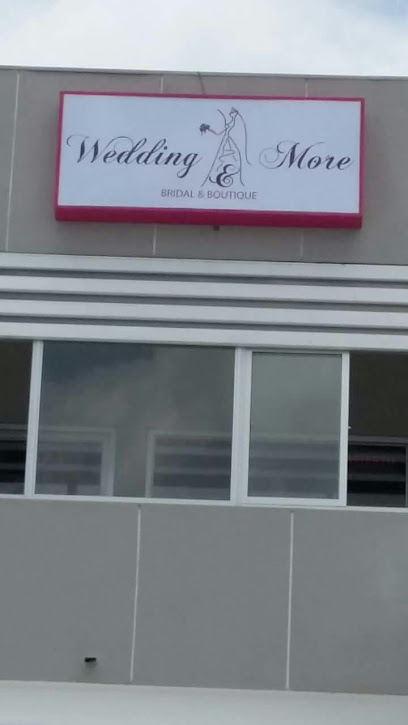
Tienda de Monedas y Antigüedades(UniversalCom) David.
Explore the rich history and unique collectibles at Tienda de Monedas y Antigüedades in David, a must-visit destination for antique lovers.
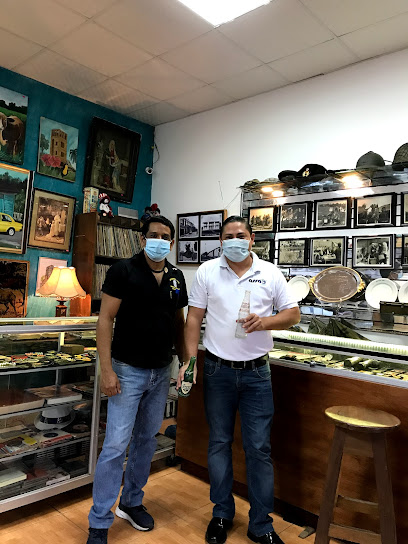
Things Panamá
Explore a unique blend of local and international fashion at Things Panamá in David, Chiriquí Province, perfect for every style and occasion.
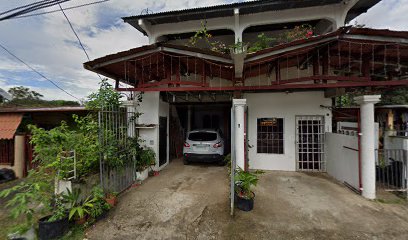
Joyería Pandora
Explore the exquisite world of jewelry at Joyería Pandora in David, Chiriquí Province, where elegance meets craftsmanship.

Essential bars & hidden hideouts
Hangar Bar and Grill.
Discover the flavors of Chiriquí at Hangar Bar and Grill, where local cuisine meets a lively atmosphere in the heart of David.
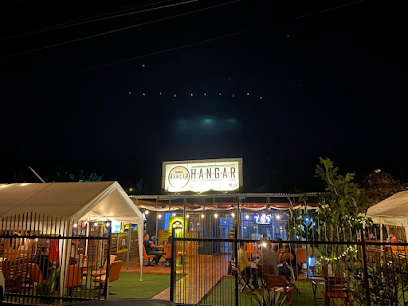
3/4 Steak & Beers
Experience the vibrant flavors of Panama at 3/4 Steak & Beers, where delicious grilled delicacies meet a fantastic selection of craft beers.
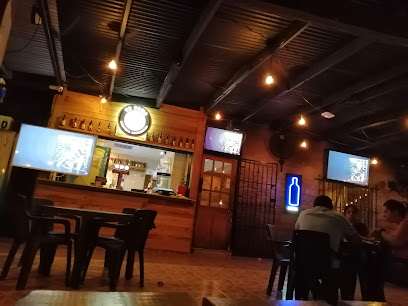
By Chacon Bar
Discover the lively nightlife at By Chacon Bar, a friendly spot in David, Chiriquí, offering great drinks and a vibrant atmosphere for all.
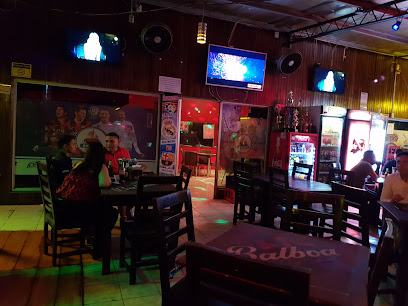
Bar & Grill Blue Monday
Experience the vibrant flavors of Bar & Grill Blue Monday in David, a culinary gem offering grilled delights and refreshing drinks in a lively atmosphere.
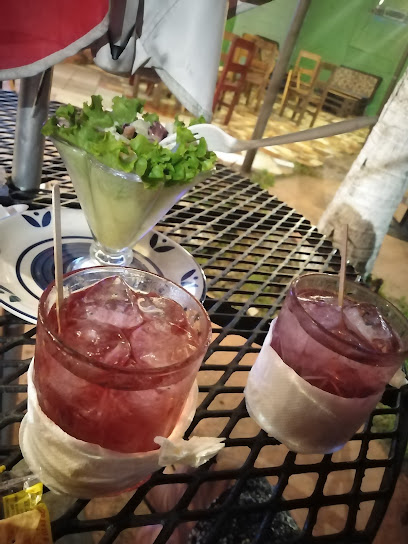
Bar Brother´s
Experience the vibrant nightlife at Bar Brother's in David, where great drinks and live music create unforgettable moments.
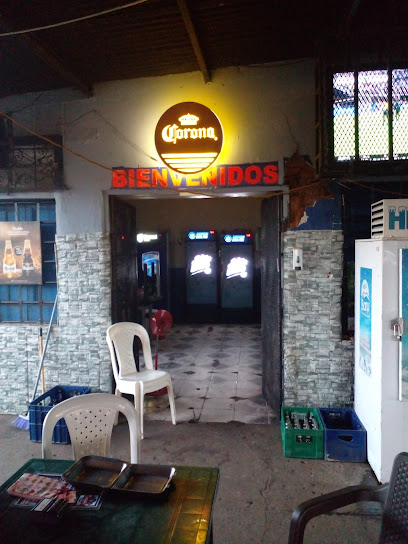
Beto’s Bar
Discover the lively nightlife of David at Beto's Bar, where local flavors and vibrant atmosphere create unforgettable experiences.
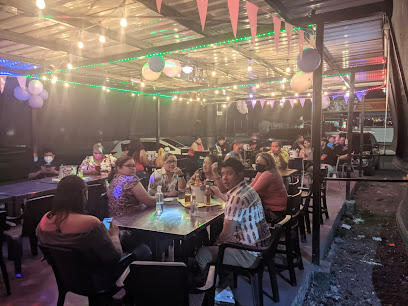
Mario's Bar&Grill
Experience the vibrant nightlife and culinary delights at Mario's Bar&Grill in David, Chiriquí Province, where every bite and sip tells a story.
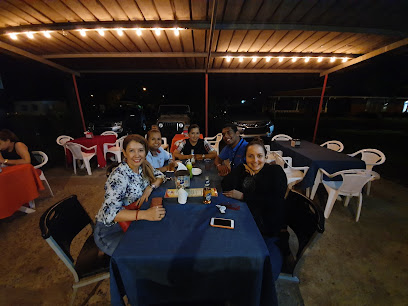
Ley Seca Pub & Grill
Experience the vibrant nightlife and local cuisine at Ley Seca Pub & Grill in David, Chiriquí Province, where every visit feels like a celebration.
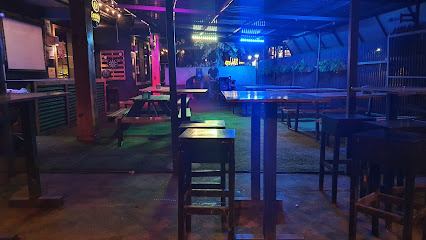
La Trinchera sport bar
Discover the excitement and local charm at La Trinchera Sport Bar in David, Chiriquí, a top destination for sports fans and food lovers alike.
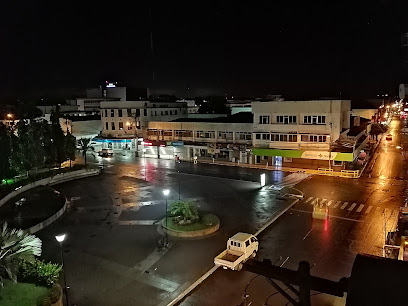
One Way
Experience the vibrant nightlife of David at One Way, a lively bar offering great drinks, entertainment, and a welcoming atmosphere.
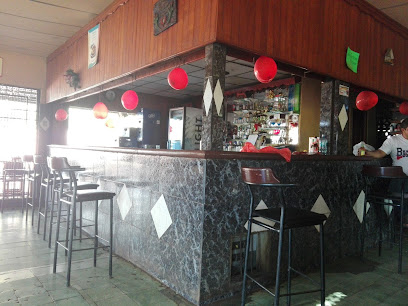
Bar La Princesa
Discover the vibrant nightlife of David at Bar La Princesa, where refreshing drinks and a friendly atmosphere await.
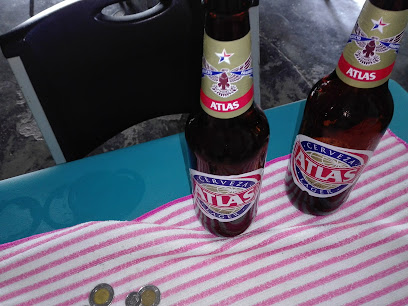
Drunker‘s Bar
Experience the best of local cuisine at Drunker‘s Bar in David, where delicious grills meet a lively atmosphere perfect for travelers.
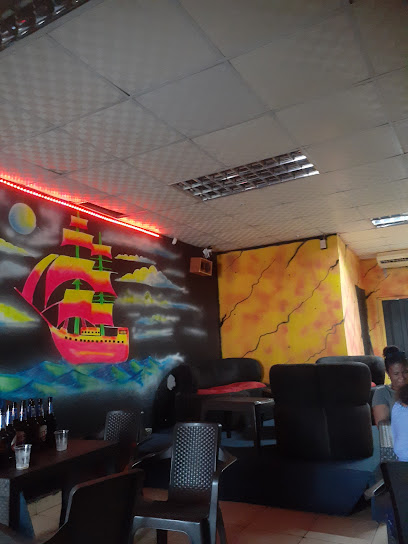
La Terraza Bar and Grill
Discover La Terraza Bar and Grill in David, where locals and travelers come together to enjoy delicious food and vibrant drinks in a lively setting.
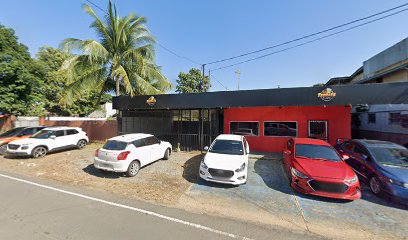
Bar my space
Experience vibrant nightlife at Bar My Space in David, where friendly vibes and refreshing drinks create unforgettable moments in Chiriquí.
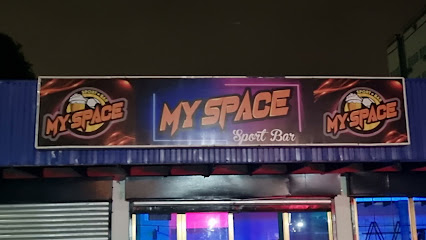
Local Phrases
-
- HelloHola
[oh-lah] - GoodbyeAdiós
[ah-dee-ohs] - YesSí
[see] - NoNo
[noh] - Please/You're welcomePor favor/De nada
[por fah-vohr/de nah-dah] - Thank youGracias
[grah-see-ahs] - Excuse me/SorryDisculpe/Lo siento
[dee-skool-peh/loh see-ehn-toh] - How are you?¿Cómo estás?
[koh-moh ehs-tahs] - Fine. And you?Bien. ¿Y tú?
[byen. ee too] - Do you speak English?¿Hablas inglés?
[ah-blahs een-glehs] - I don't understandNo entiendo
[noh ehn-tee-ehn-doh]
- HelloHola
-
- I'd like to see the menu, pleaseMe gustaría ver el menú, por favor
[meh goos-tah-ree-ah behr ehl meh-noo, poor fah-vohr] - I don't eat meatNo como carne
[noh koh-moh kahr-neh] - Cheers!¡Salud!
[sah-lood] - I would like to pay, pleaseMe gustaría pagar, por favor
[meh goos-tah-ree-ah pah-gahr, poor fah-vohr]
- I'd like to see the menu, pleaseMe gustaría ver el menú, por favor
-
- Help!¡Ayuda!
[ah-yoo-dah] - Go away!¡Vete!
[veh-teh] - Call the Police!¡Llama a la Policía!
[yah-mah ah lah poh-lee-see-ah] - Call a doctor!¡Llama a un médico!
[yah-mah ah oon meh-dee-koh] - I'm lostEstoy perdido
[ehs-toy pehr-dee-doh] - I'm illEstoy enfermo
[ehs-toy ehn-fehr-moh]
- Help!¡Ayuda!
-
- I'd like to buy...Me gustaría comprar...
[meh goos-tah-ree-ah kohm-prahr...] - I'm just lookingSolo estoy mirando
[soh-loh ehs-toy mee-rahn-doh] - How much is it?¿Cuánto cuesta?
[kwan-toh kwehs-tah] - That's too expensiveEso es demasiado caro
[eh-soh ehs deh-mah-see-ah-doh kah-roh] - Can you lower the price?¿Puedes rebajar el precio?
[pweh-dehs reh-bah-hahr ehl pree-syoh]
- I'd like to buy...Me gustaría comprar...
-
- What time is it?¿Qué hora es?
[keh oh-rah ehs] - It's one o'clockEs la una
[ehs lah oo-nah] - Half past (10)Media (10)
[meh-dee-ah (deez)] - MorningMañana
[mah-nyah-nah] - AfternoonTarde
[tahr-deh] - EveningNoche
[noh-cheh] - YesterdayAyer
[ah-yehr] - TodayHoy
[oy] - TomorrowMañana
[mah-nyah-nah] - 1Uno
[oo-noh] - 2Dos
[dohs] - 3Tres
[trehs] - 4Cuatro
[kwah-troh] - 5Cinco
[seen-koh] - 6Seis
[sehs] - 7Siete
[see-eh-teh] - 8Ocho
[oh-choh] - 9Nueve
[nweh-veh] - 10Diez
[dyehs]
- What time is it?¿Qué hora es?
-
- Where's a/the...?¿Dónde está...?
[dohn-deh ehs-tah] - What's the address?¿Cuál es la dirección?
[kwal ehs lah dee-rehk-syohn] - Can you show me (on the map)?¿Puedes mostrarme (en el mapa)?
[pweh-dehs mohs-trahr-meh (ehn ehl mah-pah)] - When's the next (bus)?¿Cuándo es el próximo (autobús)?
[kwan-doh ehs ehl proh-ksy-moh (ow-toh-boos)] - A ticket (to ....)Un boleto (a ....)
[oon boh-leh-toh (ah)]
- Where's a/the...?¿Dónde está...?
History of David
-
David, the capital of the Chiriquí province, was founded in 1602 by the Spanish. It was named after King David of the Bible, reflecting the Spanish tradition of naming towns after religious figures. The settlement quickly became an important agricultural and commercial center due to its strategic location between the Pacific Ocean and the highlands.
-
During the colonial period, David was a pivotal point for the Spanish in their quest to control and colonize the region. The area's fertile lands made it a hub for agricultural activities, which included the cultivation of crops such as coffee, sugarcane, and various fruits. The colonial architecture, with its classic Spanish style, still influences the city’s landscape today.
-
David played a significant role in Panama's independence movements in the early 19th century. The city was a center for revolutionary ideas and activities, contributing to Panama's eventual separation from Spain in 1821 and later from Colombia in 1903. Key figures from David participated in these movements, leaving a lasting legacy in the city's historical narrative.
-
The 20th century ushered in a period of modernization for David. Infrastructure improvements, such as the construction of the Pan-American Highway, bolstered its status as a key commercial and transportation hub. The city's growth was marked by an increase in population, urban development, and the establishment of educational institutions, further enhancing its economic and cultural significance.
-
David is renowned for its vibrant cultural festivals, which reflect the rich heritage of the region. The Feria de San José, held annually in March, is one of the most prominent events, showcasing local arts, crafts, music, and traditional dances. These festivals not only celebrate the city’s history but also foster a sense of community and cultural pride among its residents.
-
Today, David is a thriving economic center in western Panama. Its economy is largely driven by agriculture, commerce, and tourism. The city's markets are famous for their fresh produce, including fruits, vegetables, and dairy products from the surrounding fertile lands. Additionally, David serves as a gateway to various tourist attractions, such as the beaches of Las Lajas and the highlands of Boquete.
David Essentials
-
David, located in the Chiriquí Province of Panama, can be reached via Enrique Malek International Airport (DAV), which has direct flights from major cities like Panama City. From Panama City, you can also take a domestic flight, a long-distance bus, or rent a car for a scenic drive along the Pan-American Highway. The bus journey typically takes around 6-8 hours, while a flight lasts about an hour.
-
Within David, taxis and buses are the most common modes of transport. Taxis are relatively inexpensive and can be hailed on the street or through apps. Public buses and minibuses (colectivos) are also available and cover most areas of the city. For more flexibility, consider renting a car, which allows you to explore nearby attractions like Boquete and the Gulf of Chiriquí National Marine Park.
-
The official currency in Panama is the Panamanian Balboa (PAB), but the US Dollar (USD) is widely used and accepted. Credit and debit cards are commonly accepted in hotels, restaurants, and larger stores. However, it's advisable to carry cash for smaller establishments and local markets. ATMs are widely available throughout David for cash withdrawals.
-
David is generally safe for tourists, but it's wise to practice standard precautions. Avoid walking alone at night in unfamiliar areas and keep your belongings secure in crowded places. While most areas are safe, neighborhoods like Barrio Bolívar and surrounding regions can have higher crime rates. Stay vigilant and consult with locals or your accommodation for up-to-date safety advice.
-
In case of an emergency, dial 911 for police, fire, or medical assistance. The Hospital Regional Rafael Hernández is a major medical facility in David and can handle most medical emergencies. Pharmacies are plentiful and can provide over-the-counter medications. It is advisable to have travel insurance that covers medical emergencies and evacuation if necessary.
-
Fashion: Do dress comfortably and modestly, especially in rural or religious areas. Avoid overly revealing clothing. Religion: Do respect local customs and traditions, including dressing modestly when visiting churches. Public Transport: Do be respectful and courteous. Don't eat or drink on public transport. Greetings: Do greet people with a handshake or a polite nod. Eating & Drinking: Do try local dishes like sancocho and ceviche. Don’t refuse food or drink offerings as it may be seen as impolite.
-
To experience David like a local, visit the bustling Mercado Público where you can find fresh produce, local crafts, and traditional foods. Engage with locals, who are often friendly and eager to share stories about the area. Don’t miss the chance to explore the nearby highlands of Boquete, known for its coffee plantations and stunning natural beauty.
Trending Landmark in David
-
Miguel de Cervantes Saavedra Park
-
City of David Hotel
-
Los Cangilones de Gualaca
-
Hampton by Hilton David
-
Aranjuez Hotel & Suites
-
Baru Volcano National Park
-
Hotel Castilla
-
Hotel Residencial Cervantes
-
Hotel City Plaza & Suites
-
Sitio Barriles
-
Finca Dracula
-
Caldera Hot Springs
-
Catedral de San José de David
-
Sendero Los Quetzales
-
Museo del Barrio y Antigüedades La Casona
Nearby Cities to David
-
Things To Do in Boquete
-
Things To Do in Volcan
-
Things To Do in Bocas del Toro
-
Things To Do in Puerto Viejo
-
Things To Do in Manuel Antonio
-
Things To Do in Chitre
-
Things To Do in San Jose
-
Things To Do in Las Tablas
-
Things To Do in Jaco
-
Things To Do in Colon
-
Things To Do in Panama City
-
Things To Do in Portobelo
-
Things To Do in La Fortuna
-
Things To Do in Monteverde
-
Things To Do in Guanacaste









